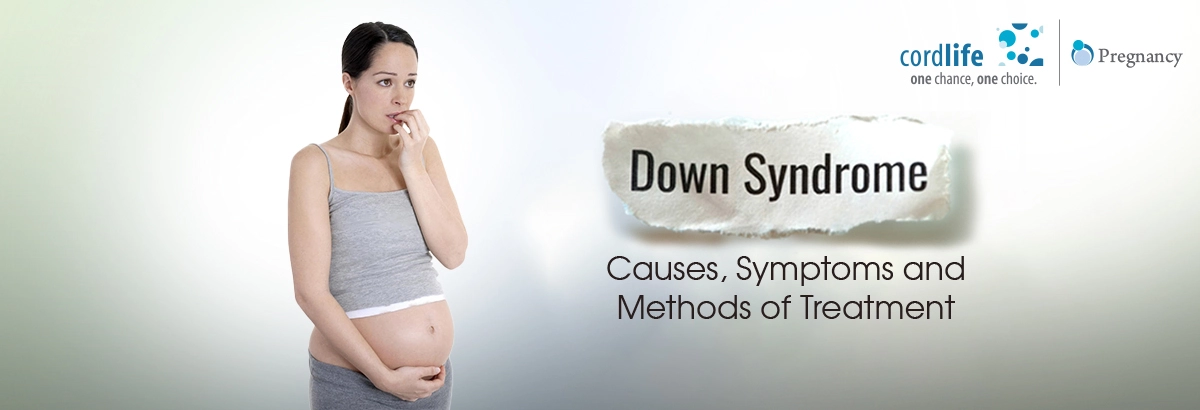Table of Contents
- What Causes Down Syndrome Disease?
- How Is Down Syndrome Detected During Pregnancy?
- Nuchal Translucency Testing (NTT)
- Triple Screen/quadruple Screen
- Integrated Screen
- Genetic Ultrasound
- Cell-free DNA
- How Can Babies Get Affected by Down Syndrome Disease?
- What Are the Ways of Treating Down syndrome Disease in Babies?
Down Syndrome disease is a genetic birth defect in a child, who is born with an extra chromosome out of the 21 chromosomes. “Trisomy” is the medical term for that extra chromosome.
What Causes Down Syndrome Disease?
Everything starts during your pregnancy. Although it can happen to children of young mums, however, according to CDC, the chances of pregnancy with Down syndrome increase with age.
There are high chances of your being pregnant with a child with down syndrome if you are more than 35 years of age. 1 in 60 of you might have a baby with Down’s syndrome by the age of 42. 1 in 12 of you might have a baby or babies with Down Syndrome, by 49 years of your age.
Additionally, you might have a baby with Down Syndrome, if someone else in the family also has it or carries genetic translocation.
How Is Down Syndrome Detected During Pregnancy?
Well! Going through several prenatal screenings is the norm. In the process, you might have to undergo a few special screening tests to find out whether the baby inside your womb has down syndrome disease. Here are a few tests to detect Down syndrome during pregnancy.
Nuchal Translucency Testing (NTT)
For this test, a blood test is done between 11 and 14 weeks of your pregnancy. This is also a kind of ultrasound scan that ensures your developing baby’s space behind the neck is visible. If the developing foetus has this problem, fluid gets accumulated in this space.
Triple Screen/quadruple Screen
This is also known as “multiple markers.” This test takes place between 15 and 18 weeks of your pregnancy and checks whether the foetus is affected by trisomy 21.
Integrated Screen
You can get this test done from 10 to 13 weeks of your pregnancy and then from 15 to 16 weeks. Often referred to as Quad Marker Screening, through this test you can get some of the major pregnancy hormones checked like:
- Alpha-fetoprotein (AFP): The baby inside you produces a protein that passes from the placenta into the bloodstream.
- Human chorionic gonadotropin (hCG): This a placental hormone.
- Inhibin A (IhA): The placenta produces this hormone.
- Unconjugated estriol (uE3): Both the baby inside you and the placenta produces this type of oestrogen hormone.
Genetic Ultrasound
This help in evaluating the cells from the amniotic fluid, surrounding the baby in your womb. Through this blood test, you can get any physical traits of the foetus checked concerning Down Syndrome symptoms during pregnancy.
Cell-free DNA
This is the perfect test to determine whether the life you’re nurturing inside you has a chance of Down syndrome (trisomy 21).
How Can Babies Get Affected by Down Syndrome Disease?
Genes during pregnancy carry the codes responsible for inherited traits. 1 out of 166 births in India suffers from this disorder. The medical fraternity notices medical symptoms of down syndrome in babies at birth, and the signs become more apparent as your baby grows up. The symptoms include:
- Eye diseases
- Ear infections and hearing loss
- Heart defects at birth
- Flat facial features
- Short neck
- Weak muscle tone
- Atypically shaped ears
- Small size head and ears
- Bulging tongue
- An infant might be average size born or obese
Babies born with down syndrome disease may develop mild to moderate developmental disabilities such as slow learning capabilities, impulsive behaviour, and short attention span.
Moreover, children suffering from down syndrome, have an IQ level ranging from mild to low. There are also chances that babies born with down syndrome may be suffering from and struggling with the urinary tract, respiratory, and skin infections.
As an expecting mummy, you might want to know whether this problem is treatable during pregnancy. However down syndrome during pregnancy cannot be cured.
But, as a new mommy also, you have nothing to worry about. There are several treatment methods available for your baby after birth.
What Are the Ways of Treating Down syndrome Disease in Babies?
The treatment methods for this problem can take place when the healthcare specialist takes a closer look at the symptoms or the clinical features as has been mentioned above.
However, with the wide-ranging therapies available, you might be able to understand that early intervention can be prevention for your baby born with down syndrome.
Having said that there are a few education programs to treat the condition. These educational programs include:
- Speech or Feeding therapy
- Occupational therapy
- Physical therapy
That said, as a new mom, raising a child with down syndrome disease may not be that easy for you. Moreover, your path may even be different from the other new mummies. But talking things out with the other mummies might also be helpful.
